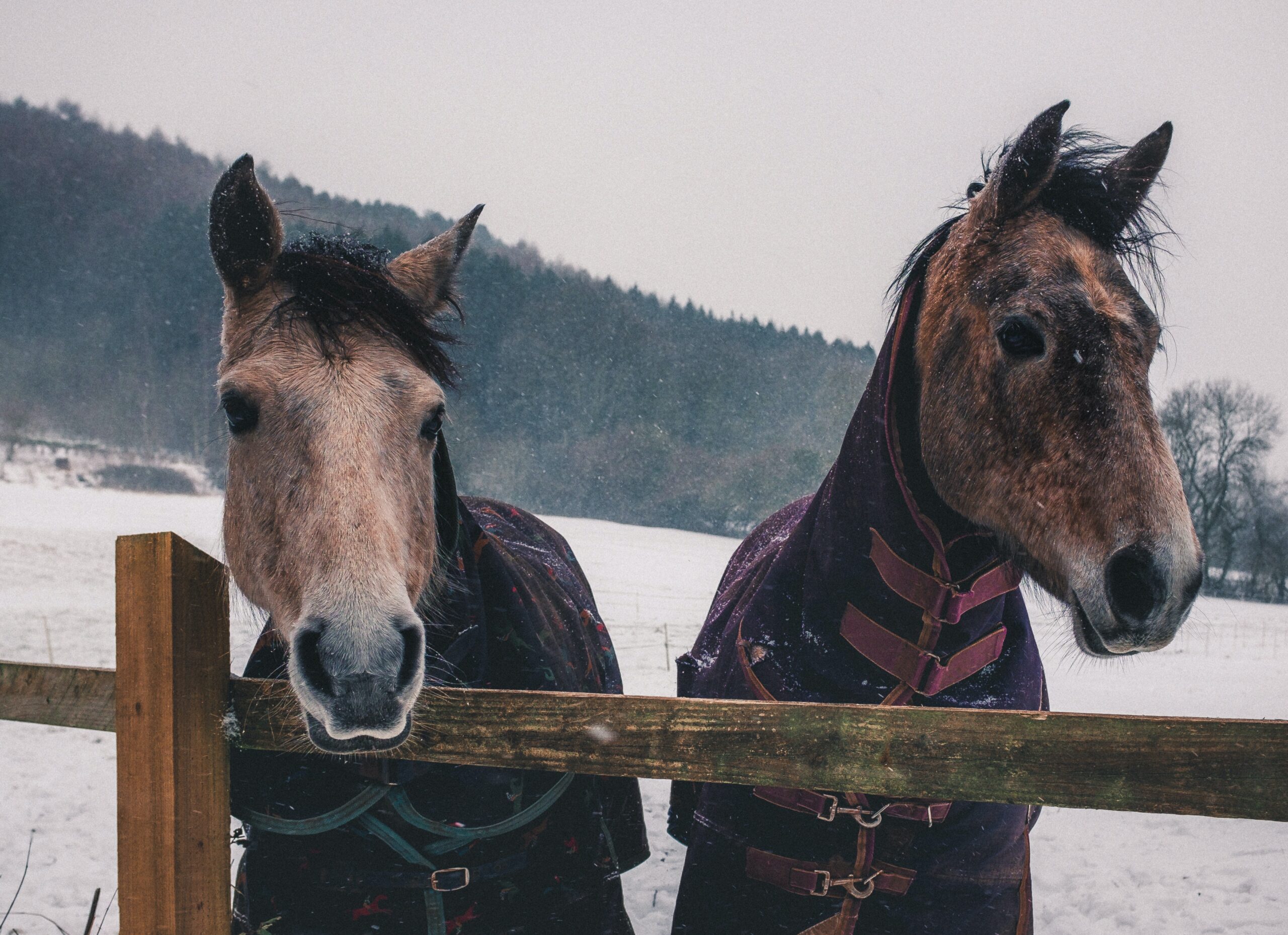
Top tips for equine wellness this winter
There are many ways to keep your horse well when the weather worsens. With morning frosts seemingly just around the corner, it’s worth reading up on now. Below is some useful advice from our principal osteopath Chantal, to help keep your horse warm, happy and safe during the colder months.
Provide shelter from rain and wind
Horses cope very well in dry, cold weather. By using erector muscles at the root of each hair follicle, they are able to ‘fluff’ their double coat to trap warm air and retain their body heat. They also produce waterproof oils, which helps to keep rain and moisture away from the skin. Horses can struggle in persistent wet, windy conditions, especially if they are elderly or exposed to the elements without shelter.
Access to forage 24/7
For those with horses or ponies who gain weight easily, it’s still important to provide constant low calorie forage. Equine nutritionists advise feeding up to 30% clean, good quality straw alongside stemmy hay. Horses who struggle to maintain a healthy weight in winter should be fed as much good quality hay as they will eat, plus feeds that include forage, grain and oils*.
Rug consistently
A healthy horse’s core temperature will remain at 38°C even when air temperatures drop as low as 0°C or reach up to 25°C. And although your horse is much better than us at regulating their body temperature (our thermoneutral zone requires us to add and remove layers when the air temperature changes by 5°C) sometimes they need extra layers too! Make sure your horse’s rug is fully waterproof (and insulated, if clipped or elderly) and fitted correctly – click here for help fitting your horse’s rug. Monitor your horse’s condition every day, fully removing the rug to look for sores, bold patches or weight loss and any damage to the fabric.
Think carefully before clipping
If your horse is turned out all winter, they could struggle after a clip. They will need additional rugging to compensate for a lack of warmth and protection from their coats. If you’re not sure how much you can commit to riding your horse through the winter months, consider whether clipping your horse is the right idea.
Keep an eye on your horse’s weight
Horses naturally lose a little weight in the winter months in preparation for the spring grass. Increase their hay if you are worried your horse might be dropping condition or weight. This will help to keep them warm.
Walk your horse after exercise
Horses can easily get chilled after a workout. Walk your horse after exercise so they can cool down slowly and, if necessary, use a cooler blanket to stop their body temperature from losing heat too quickly.
Take extra care with older horses
Prepare for a winter of increased hay, hard feed and appropriate rugging alongside your usual shelter and forage routines. Additional blankets can be added for extra warmth underneath your horses turn out/stable rug to help keep their spine and movement supple.
Allow access to a clean, constant water source
Dehydration is a major cause of colic. Float a tennis ball in your horse’s water trough when it’s likely to freeze. This helps to slow down the process of ice forming. Keep a tool handy to break ice when it forms.
To book your horse or pony in for a osteopathic treatment, click here.**
*It’s important to make any changes to forage or feed gradually to give helpful gut bacteria the chance to adapt.
**Before an appointment can be made, please ask your vet to fill out the Veterinary Consent Form. They can attach any relevant medical history they feel will help in the examination and treatment of your horse.
